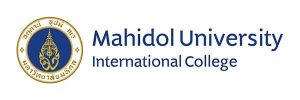MM 学习计划
September 8, 2021 2022-08-03 8:08MM 学习计划
MM 学习计划
学习计划 A(毕业论文导向)
学习计划 A(2) 的结构见下文。
必修课 | 24 学分 |
选修课 | 6 学分 |
毕业论文 | 15 学分 |
专题论文 | – |
合计(不少于) | 45 学分 |
学习计划 B(专题论文导向)
学习计划 B 的结构见下文。
必修课 | 24 学分 |
选修课 | 15 学分 |
毕业论文 | – |
专题论文 | 6 学分 |
合计(不少于) | 45 学分 |
MM 课程单元和内容
Digital marketing and off-line marketing management in managerial and entrepreneurial aspects; service setting; service encounter and service communications; the importance of customers’ satisfaction creation by marketing strategies and a support from different levels of executive
Service quality management and improvement in managerial and entrepreneurial aspects; delivering quality service to clients; training the human resource component; the meaning and importance of quality; value of the customer and service quality; quality management process; its impact on organizations and the significance of service quality to tourism and hospitality concepts; the mechanism of quality management approach to provide service excellence through several advancements in quality such as benchmarking and total quality management; service quality management and improvement in response to the digital disruption
Human resources management in managerial and entrepreneurial aspects; human resources’ changing roles; framework and functions in contemporary organizations; the strategic human capital management principles and its implementation; necessary leadership qualities in human resource management; managing multi-generations; the effective measures to create employee engagement, competency building, employee performance management and development; human resources management in response to the digital disruption
Financial and asset management in managerial and entrepreneurial aspects; fundamentals and theory of finance and asset management; financial statements analysis; financial and asset planning and control; financial ratios; financial and asset risk analysis, project feasibility; debt and equity financing; cost of capital; capital budgeting; working capital management; capital expenditures; asset valuation
Revenue management for tourism and hospitality businesses in managerial and entrepreneurial aspects; principles of revenue management; revenue journey and understanding tourism and hospitality business environment; the components of revenue management; consumer behavior; pricing; distribution channel; market dimension integration; forecast processes; revenue calculation; revenue management simulation
Digital platform for tourism and hospitality businesses in managerial and entrepreneurial aspects; IT concepts; internet; E-commerce; M-commerce; E-Business; social networks; big data; artificial intelligence (AI); Computer Reservation System (CRS); Global Distribution System (GDS); Geographical Information System (GIS); Enterprise Resource Planning (ERP); IT strategy and planning for tourism and hospitality business; safety & security in digital economy; ethical issues in digital economy
Introduction to research; basic and applied research; research process; research design; data collection methods; data analysis; report research findings; research proposal writing
Strategic plan; vision; mission; and policy formulation and implementation in various levels of corporation; theoretical concepts and frameworks useful for analyzing the external and internal environment of the corporation; the examination of strategic and entrepreneurial issues from the perspective of an owner; chief executive or general manager of tourism and hospitality enterprises, focusing on how one can formulate effective strategies and develop the necessary resources and capabilities to achieve sustainable competitive advantage in a global and volatile competitive environment as well as digital disruption era; management of change; risk management; leadership
选修课
Development and management of restaurant business; food safety; nutrition basics; marketing and sales; menu planning, design, pricing and evaluation; human resources management; accounting and financial management; standard recipes; quality food and beverage production; purchasing, receiving, storing and issuing; labor cost control standards; restaurant analysis and improvement procedures; legal aspect; restaurant layout and equipment; banquet business; engineering and facility management; restaurant management in response to the digital disruption
Event organizer business development; project management; event planning, design, management and operations; stakeholders management; impacts of events; event marketing; talent management; sponsorships; financial management; risk and crisis management; post-event follow-up; sustainable development in events; event trends and technology
Lodging business development; lodging management emphasising hotels and resorts; location selection; legal and tax issues; business project development plan; human resource and organization design; front and back of the house operations management; sales and marketing; revenue management; lodging safety and security system; environmental management system; accounting and financial management; expansion and managing multi-unit lodging property; risk and crisis management; lodging management in response to the digital disruption
Comprehensive planning for sustainable hospitality and tourism, importance of environmental, economic and socio-cultural tourism resources; assessing the possibilities and limitations of the sustainable development; socio-environmental impacts assessment, stakeholder involvement, formulating participatory planning process from decision-making through evaluation for tourism development; sustainable development in response to the digital disruption
Characteristics of leadership; types of leadership; the examination of leadership issues in hospitality firms; fundamental theories of ethics; ethical foundations in business; various ethical concepts and dilemmas in the hospitality industry for analysis and learning; essential process for self-evaluation; methods to test and apply the theories in working life
The uniqueness of Asian hospitality industry; an insight of major cultural issues; management differences; career opportunities and growth; a comparison of the hospitality industry context between the Asian and the Western world; trends and current issues in tourism and hospitality management
Special interest area or topic relevant to international tourism and hospitality industry.
Special interest area or topic relevant to international tourism and hospitality industry.
毕业论文
Research related to international tourism and hospitality management; the research process of planning, designing, data collection, analysis, synthesis, discussion, conclusion, and presentation; ethics in research and Institutional Review Board (IRB); thesis development; research publication in the academic journals or research presentation at an academic conference; research publication ethics
Independent study or business plan related to international tourism and hospitality management; the process of planning, information searching, analysis, synthesis, discussion, conclusion, and presentation of the study or business plan; report findings from articles or other information sources; providing the implementation of the results in international tourism hospitality management; thematic paper development


